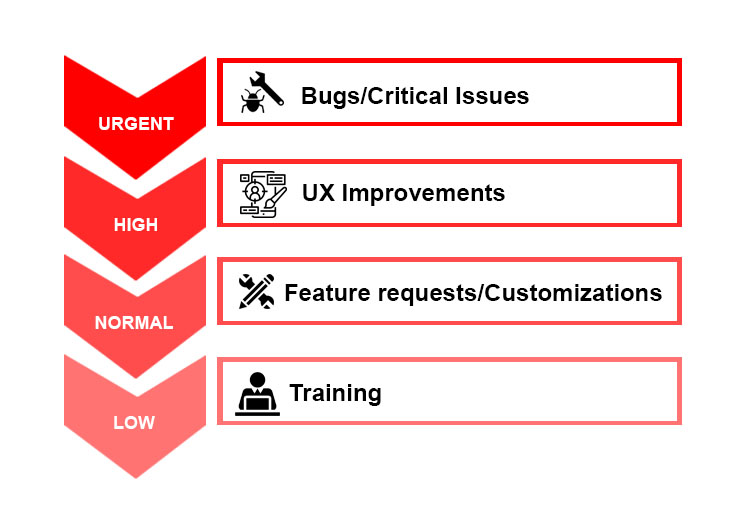Types of support issues and prioritization
Updated 3 years ago /
2 min read
The following diagram outlines the types of issues that we support and how they're typically prioritized:


- Bugs/critical issues
A problem that impairs or prevents the functions of the product. These are typically priority 1 or 2.
- UX improvements
An improvement or enhancement to an existing feature or task. These are typically 1 or 2.
- Feature requests/customizations
A new feature of the product or a special customization that has yet to be developed. Typically priority 3 or 4.
- Training
Demo, webinar, documentation, or Q&A session to provide answers to technical support questions. Typically priority 3 or 4.
The support priority is linked to the type of issue but also the impact on the customer’s business.
- Priority 1 - Urgent (critical business impact)
Requires immediate resolution. Support is dependent on the customer’s availability to assist the support engineer in resolving the issue. Critical situations do not automatically imply priority 1 if the impact is low.
- Priority 2 - High (significant business impact)
Requires a rapid resolution using the best effort.
- Priority 3 - Normal (limited business impact)
The product is usable, but some features (not critical to operations) are unavailable. The issue affects deadlines and impacts the business. Acceptable workarounds may exist. The issue may be limited to one or a few users.
- Priority 4 - Low (minimal business impact)
Issues with little or no impact. The issue does not significantly impact operations or a reasonable workaround has been implemented. These are typically added to the development pipeline.